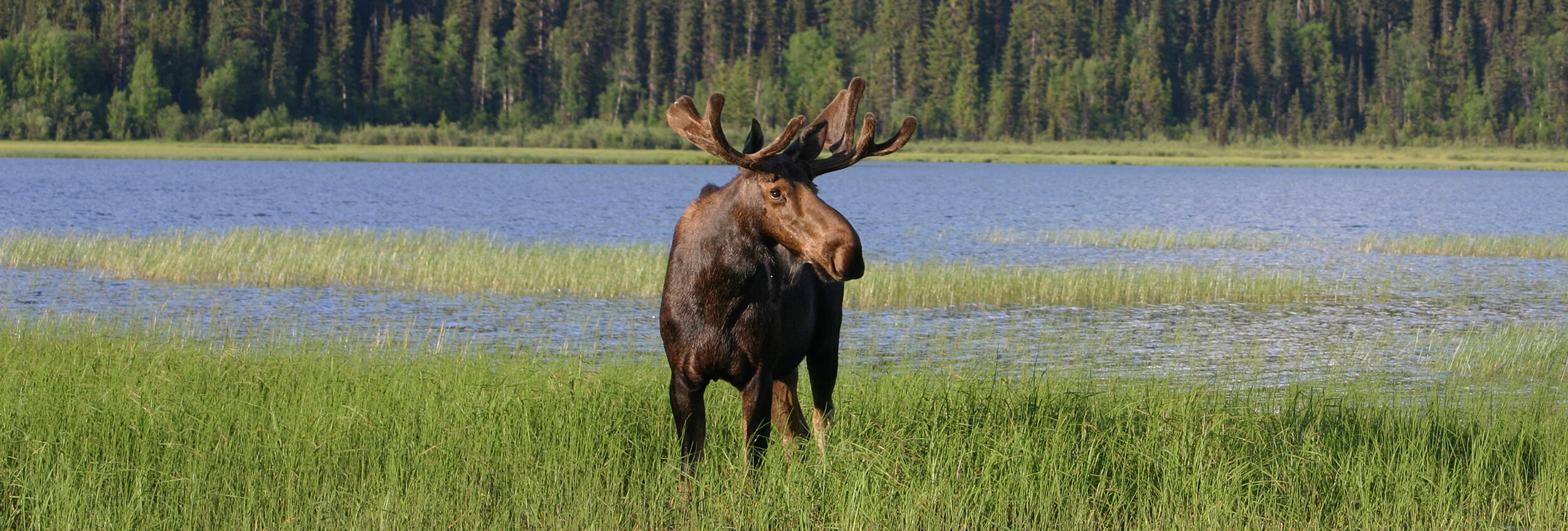CPAWS-BC celebrates steps towards facilitating Indigenous land stewardship and increasing land protection in BC.
18 January 2022Xʷməθkʷəy̓əm (Musqueam), Sḵwx̱wú7mesh (Squamish) and səlilwətaɬ (Tsleil-Waututh) Territories / Vancouver, BC— The Canadian Parks and Wilderness Society – British Columbia (CPAWS-BC) celebrates a new partnership approach between Blueberry River First Nations and British Columbia to uphold Treaty 8 rights and protect lands and waters within Suunéch’ii Kéch’iige, “The Place Where Happiness Dwells”. The Blueberry River First Nations Implementation Agreement is an important step toward facilitating Indigenous land stewardship, recognizing Indigenous rights, and increasing land and biodiversity protection in BC.
Northeastern British Columbia has been significantly impacted by development activities such as oil and natural gas extraction and forestry. This agreement will help prevent and reverse biodiversity loss through improved land use planning and restoration.
“Lands managed by Indigenous Peoples are known to have the highest levels of biodiversity. We’re excited about an increase in protected areas in BC, especially with Indigenous stewardship at the forefront,” says Meaghen McCord, Executive Director with CPAWS-BC.
This agreement is a response to the BC Supreme Court (Yahey) decision made on June 29, 2021, which stated the Province is required to protect the constitutional rights of Blueberry River First Nations and better manage the cumulative effects of industrial development on Blueberry River First Nations Treaty rights.
Collaborative land use planning detailed in this agreement identifies new areas for protection from logging, implements restrictions on oil and natural gas development in Blueberry Rivers’ Claim Area, and details an ambitious timeline for implementation. New land protections that value ecosystem health over natural resource extraction will advance BC’s commitment to protecting 30 percent of lands by 2030. The increase in protected areas and an ecosystem-based management approach will help safeguard biodiversity and species at risk.
The agreement includes new funding to restore a more intact and diverse forest with native plants. Indigenous knowledge and western science will be brought together in wildlife monitoring and management, with a focus on moose and caribou population recovery. Restoration to heal the land, and co-management of wildlife will ensure healthy ecosystems for future generations.
“Indigenous Peoples have stewarded rich and healthy landscapes since time immemorial. We hope this new partnership approach in land use planning will help fast track a pathway for creating new, and recognizing already declared, Indigenous Protected and Conserved Areas (IPCAs) in BC.” says Meaghen McCord, Executive Director.
This agreement is great news for the modernization of land-use planning and shared decision-making in BC that recognizes Indigenous rights and responsibilities and considers cumulative effects. We congratulate Blueberry River First Nations and the Province on this important agreement.
-30-
For interviews, contact:
Rippon Madtha, Communications Manager, CPAWS BC
rippon@cpaws.org | (604) 685-7445 x23
Resources:
“Province, Blueberry River First Nations reach agreement“ Government of British Columbia, 18 Jan. 2023. Press release. https://news.gov.bc.ca/releases/2023WLRS0004-000043
Where Happiness Dwells – Blueberry River First Nations
About CPAWS-BC:
The CPAWS British Columbia chapter (CPAWS-BC) works to protect wilderness in every corner of BC and deep into the ocean. We have been defending BC since 1978, and are dedicated to keeping BC’s natural environment thriving forever. Nature is BC’s best hope.
Follow us! @CPAWSBC
